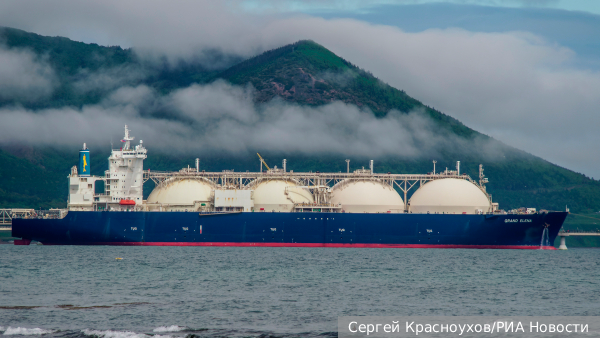
The Chinese Sinopec has already bought more 30 LNG cargoes ahead of the winter
By Rhod Mackenzie
The Chinese Sinopec Corp has already purchaed more than 30 cargoes of liquefied natural gas (LNG) ahead of winter in a tender for deliveries from October 2023 to the end of 2024. The results of the tender exceeded the plans of the Chinese energy giant, which had originally planned to buy 25 cargoes. Sinopec appears to have decided to take advantage of relatively low gas prices - $13 per million British thermal units ($456 per thousand cubic metres). The Chinese company also bought more gas to compensate for the gas that the American company Venture Global promised to supply but did not deliver.
This large purchase shows that China's relatively low demand for gas is now starting to grow. The deal was concluded on ship delivery terms, meaning that the supplier must make the gas available to Sinopec on board the LNG tanker at the agreed port of destination, but the Chinese will pay the duties themselves. The contracts provide for deliveries to China, Japan, South Korea and Taiwan. One third of the cargo (11) is scheduled for delivery to China by the end of this year.
According to a Sinopec representative, the deal is normal for this time of year. He refused to answer the question as to why the American supplier had interrupted deliveries. The Chinese energy company signed a three-year contract with Venture Global at the end of 2021 to supply one million tonnes of LNG per year from the Calcasieu Pass terminal in Louisiana. The contract began in March this year.
It's not just Sinopec that Venture Global appears to have defaulted on. Shell and BP, to whom the Americans have also cut off supplies, are now considering a claim against the American exporter.
More than 10 liquefied natural gas suppliers are involved in the current contract, including such major players as Vitol, Glencore, Shell, BP, ADNOC and China's PetroChina International.
Analysts explain the size of the purchase by the Chinese oil and gas giant's desire to regain market share lost this year due to sluggish purchases. Its place was taken by Chinese rivals PetroChina and CNOOC.
Last year, gas demand in the China fell by almost 20% due to pandemic closures. As a result, Japan regained its status as the world's largest importer of LNG. This year, China's gas demand is forecast to grow by 7.4%, according to consultancy SIA Energy.
Traders and analysts believe that Beijing expects to meet a 7 per cent increase in demand through increased domestic natural gas production, increased pipeline gas imports from Russia and Central Asia, and long-term liquefied gas contracts.
